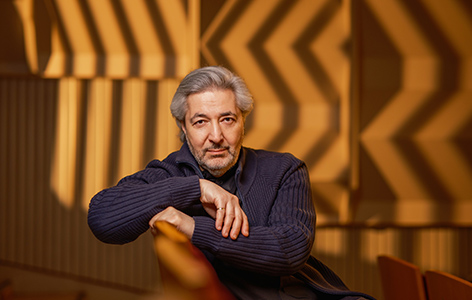
A3 Shostakovich’s Tenth
An evening full of emotions, stories, and contrasts. The program includes the lyrical overture and pantomime from Janáček’s The Cunning Little Vixen, Max Bruch’s Violin Concerto performed by British virtuoso Jennifer Pike, and a powerful, deeply personal statement from Dmitri Shostakovich — his Tenth Symphony, which reveals the dark shadows of the Stalinist era and the struggle for freedom of the spirit.
Leoš Janáček
Overture and Pantomime from the opera The Cunning Little Vixen
Max Bruch
Violin Concerto No. 1 in G minor, Op. 26
Dmitri Shostakovich
Symphony No. 10 in E minor, Op. 93
Jennifer Pike – violin
Janáček Philharmonic Ostrava
Daniel Raiskin – conductor
It has been more than one hundred years since the premiere of Leoš Janáček’s opera The Cunning Little Vixen, yet Janáček’s music remains youthful and fresh. The story, based on a novella by writer Rudolf Těsnohlídek, blends the world of animals with that of humans, celebrating the beauty of the natural and ever-repeating cycle of life. This life, much like Janáček’s vibrant music, is filled with joy, love, humor, and wisdom, but also wildness, anger, and sorrow. At this concert, two short sections will be performed, the Overture and the Pantomime from the opera’s first act.
The performance will feature one of today’s leading British violinists, Jennifer Pike, presenting one of the most frequently performed and beloved romantic violin concertos. Max Bruch’s Violin Concerto No. 1, composed between 1865 and 1867, has won lasting popularity through its soaring melodies, passionate emotions, and the extraordinary virtuosity it demands of the soloist.
Dmitri Shostakovich’s Symphony No. 10, composed shortly after Stalin’s death in 1953, will close the evening. This year also marks the 120th anniversary of the composer’s birth. The symphony stands as a devastating autobiographical confession, expressing the pervasive fear, despair, and terror of the Stalinist era in contrast with the composer’s own haunting inner emotions. According to some testimonies, Shostakovich conceived the demonic scherzo as a sarcastic musical portrait of Stalin.



